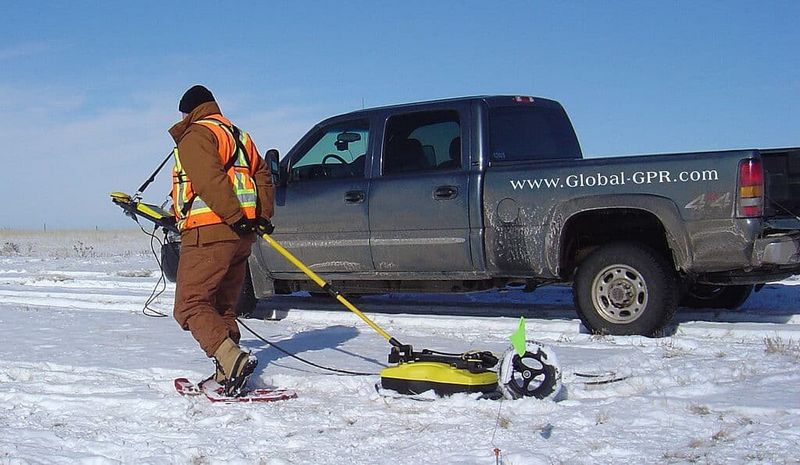
Workers’ Comp Adjuster Delays: Tactics and How to Address Them.
Are you tired of dealing with tactics and delays from workers’ comp adjusters? It can be frustrating when you’re trying to navigate the workers’ comp process and you feel like you’re hitting roadblocks at every turn.
But don’t worry, there are strategies you can use to address these tactics and delays head-on. By understanding how adjusters operate and knowing how to effectively communicate with them, you can increase your chances of getting the compensation you deserve.
1. Stay informed: Educate yourself about the workers’ comp system and the rights and benefits available to you. The more knowledgeable you are, the better equipped you’ll be to challenge any tactics or delays that arise.
2. Document everything: Keep detailed records of all communication with the adjuster, including phone calls, emails, and letters. This will help you track any delays or inconsistencies in their responses and provide evidence of any tactics they may be using.
3. Be proactive: Don’t wait for the adjuster to reach out to you. Take the initiative to follow up on your claim and provide any necessary documentation promptly. By being proactive, you can help prevent unnecessary delays.
4. Seek legal assistance: If you’re facing significant delays or believe the adjuster is using unfair tactics, consider consulting with a workers’ comp attorney. They can provide guidance and advocate on your behalf to ensure your rights are protected.
In conclusion, addressing tactics and delays of workers’ comp adjusters requires a proactive approach, staying informed, and documenting everything. By following these strategies and seeking legal assistance if needed, you can navigate the workers’ comp process more effectively and increase your chances of a favorable outcome.
Understanding workers’ compensation claims
Delays in workers’ compensation claims
One of the main challenges in workers’ compensation claims is the potential for delays in the process. These delays can be caused by various factors, such as paperwork issues, medical evaluations, or disputes between the injured worker and the workers’ comp adjuster.
Addressing delays in workers’ compensation claims
It is important for workers to know how to address these delays in order to ensure a smooth and timely resolution to their workers’ compensation claims. One tactic to address delays is to maintain open communication with the workers’ comp adjuster. By staying in touch and providing any necessary documentation or information promptly, workers can help prevent unnecessary delays in their claims.
Understanding the workers’ comp adjuster’s tactics
Workers should also have a solid understanding of the tactics commonly used by workers’ comp adjusters. These tactics may include requesting additional documentation, scheduling multiple medical evaluations, or disputing the severity of the injury. By being aware of these tactics, workers can better navigate the workers’ compensation process and address them effectively.
How to address workers’ comp adjuster’s tactics
To address the tactics used by workers’ comp adjusters, workers can gather and organize all relevant documentation related to their injury. They can also consult with an attorney who specializes in workers’ compensation claims to ensure their rights are protected and to receive guidance on how to effectively counter the adjuster’s tactics.
Conclusion
Understanding workers’ compensation claims, including the delays that may arise and the tactics used by workers’ comp adjusters, is crucial for workers seeking fair compensation for their work-related injuries. By addressing these issues proactively and seeking appropriate legal support, workers can increase their chances of a successful workers’ compensation claim outcome.
Tactics used by workers’ comp adjusters
Workers’ comp adjusters are professionals who work for insurance companies to evaluate and process claims for work-related injuries or illnesses. While their role is to ensure that injured workers receive the benefits and compensation they are entitled to, there are tactics that some adjusters may use to delay or deny claims. It is important for workers to understand these tactics and know how to address them to ensure a fair and timely resolution of their claims.
| Delays in processing | Adjusters may intentionally delay processing claims, causing unnecessary waiting times for injured workers. | Keep detailed records of all communications with the adjuster, including dates and times. Follow up regularly to inquire about the status of your claim. If the delays persist, consider seeking assistance from a workers’ rights attorney or a state workers’ compensation agency. |
| Denying valid claims | Some adjusters may wrongfully deny valid claims in an attempt to minimize costs for the insurance company. | Gather and provide all necessary medical evidence and documentation to support your claim. If your claim is denied, review the denial letter carefully and identify any errors or missing information. Appeal the denial if you believe it is unjustified, and seek legal representation if necessary. |
| Offering low settlements | Adjusters may try to offer low settlement amounts in hopes that injured workers will accept less than they deserve. | Research and understand the average settlement amounts for similar injuries in your area. Consult with a workers’ compensation attorney to evaluate the fairness of the settlement offer. Negotiate for a higher settlement amount if it is justified based on the severity of your injuries and the impact on your daily life. |
| Requesting excessive documentation | Some adjusters may request excessive or unnecessary documentation, causing further delays and frustration for injured workers. | Understand the documentation requirements for your specific claim and provide only what is necessary. Keep copies of all submitted documents and communicate clearly with the adjuster to streamline the process. If you believe the requests are excessive, consult with an attorney or contact the workers’ compensation agency for guidance. |
| Employing surveillance tactics | Adjusters may hire investigators to conduct surveillance on injured workers in an attempt to gather evidence to dispute their claims. | Be aware of your rights and limitations as an injured worker. Do not engage in any activities that may jeopardize your claim or misrepresent the extent of your injuries. If you suspect surveillance, consult with an attorney to protect your rights and gather evidence to support the validity of your claim. |
By being aware of these tactics and knowing how to address them, workers can navigate the workers’ comp claims process more effectively and secure the benefits they rightfully deserve.
Delays in the claims process
Delays in the claims process can be frustrating for workers who are seeking compensation for their injuries. It is important for workers to understand how to address these delays and work with their comp adjuster to ensure a timely resolution.
One way to address delays is to establish open lines of communication with the adjuster. By maintaining regular contact and providing any necessary documentation or information promptly, workers can help keep the claims process moving forward.
Additionally, it is important for workers to be proactive and stay involved in the process. This includes following up on any outstanding requests or tasks, such as scheduling medical appointments or providing additional documentation. By taking an active role in their own case, workers can help avoid unnecessary delays.
Understanding the claims process and the role of the adjuster is also essential. Workers should familiarize themselves with the timeline and requirements of the workers’ comp system in their jurisdiction, and ensure that they are meeting all necessary deadlines and obligations.
In some cases, delays may be caused by factors outside of the worker’s control. When facing significant delays, workers may consider seeking assistance from an attorney or advocate who specializes in workers’ comp cases. These professionals can help navigate the claims process, address delays, and ensure that workers receive the compensation they are entitled to.
In conclusion, workers should take a proactive approach when addressing delays in the claims process. By establishing open communication, staying involved, and seeking assistance when necessary, workers can help expedite their workers’ comp claims and ensure a timely resolution.
Seeking to discredit the claim
Workers’ comp adjusters may use various tactics and delays to discredit a claim. They have a vested interest in minimizing the compensation paid out to injured workers, and will often go to great lengths to undermine and challenge the validity of a claim. Understanding these tactics can help claimants navigate the workers’ comp process more effectively.
One common tactic used by adjusters is to question the severity of the injury or claim that it is unrelated to the job. They may argue that the injury is a pre-existing condition or that the employee aggravated an existing injury outside of work. This can delay the claim and lead to further investigation or medical evaluations, which can be frustrating for the injured worker.
Another tactic is to question the credibility of the injured worker. Adjusters may dig into the claimant’s personal and medical history, looking for any inconsistencies or prior injuries that can be used to cast doubt on the current claim. They may also monitor social media accounts to see if the claimant is participating in activities that suggest they are not as injured as they claim to be.
Delaying tactics are also often used by adjusters. They may request excessive amounts of documentation or medical records, causing unnecessary delays and frustration for the injured worker. They may also schedule additional medical exams, seeking second opinions or challenging the initial diagnosis and treatment plan.
It is important for injured workers to understand their rights and the workers’ comp process to effectively counter these tactics. Seeking legal representation or consulting with an experienced workers’ comp attorney can provide invaluable guidance and support in navigating the challenges and delays imposed by adjusters. It is also crucial to document all interactions and communications with adjusters, including phone calls, emails, and letters, to protect oneself and ensure a fair resolution to the claim.
In summary, workers’ comp adjusters employ various tactics and delays to discredit the claim. Understanding these tactics and seeking appropriate assistance can help injured workers navigate the process and maximize their chances of receiving fair compensation.
Underestimating the value of the claim
One of the tactics that workers’ comp adjusters often use to delay the process of resolving claims is underestimating the value of the claim. By downplaying the severity of the injuries or losses suffered by the worker, the adjuster can attempt to reduce the settlement amount or deny the claim altogether.
However, it is important for injured workers to know how to address this tactic effectively. Here are some steps to follow:
- Document everything: Keep a detailed record of all medical treatments, expenses, and any limitations caused by the injuries. This documentation will support your case and prove the true value of your claim.
- Consult with an attorney: An experienced workers’ comp attorney can help you assess the value of your claim and negotiate with the adjuster on your behalf. They have the knowledge and expertise to make sure you are not being undervalued.
- Provide medical evidence: Obtain all relevant medical records, including diagnoses, treatments, and prognosis. This evidence will help substantiate the value of your claim and counter any attempts to undermine it.
- Be persistent: Do not give up easily if the adjuster tries to undervalue your claim. Stand firm and assert your rights. Keep pushing for a fair and just resolution.
- Appeal if necessary: If the adjuster continues to underestimate the value of your claim, you may need to consider filing an appeal or pursuing legal action. Consult with your attorney to explore your options.
Remember, it is crucial to be proactive and well-informed when dealing with workers’ comp adjusters who may try to delay or undermine the value of your claim. By following these steps, you can ensure that your claim receives the fair treatment it deserves.
Denying or delaying medical treatment
When dealing with workers’ comp claims, it is unfortunately not uncommon for adjusters to deny or delay the approval of necessary medical treatment. This can be a frustrating and potentially harmful situation for injured workers who are in need of immediate care.
If you find yourself in a situation where your workers’ comp adjuster is denying or delaying your medical treatment, it is important to know how to address this issue. Here are some steps you can take:

1. Document everything: Keep a record of all communication with your adjuster regarding your medical treatment. This includes emails, phone calls, and any other form of correspondence. Having a clear paper trail will be helpful if you need to escalate the issue.
2. Review your rights: Familiarize yourself with your rights as an injured worker. Each state has its own workers’ compensation laws, so make sure you understand what you are entitled to in terms of medical treatment.
3. Request a second opinion: If your adjuster is denying your request for a specific treatment, consider getting a second opinion from another medical professional. This can help strengthen your case and provide additional evidence of the necessity of the treatment.
4. Seek legal assistance: If the denial or delay of your medical treatment continues and is causing you significant harm, it may be necessary to seek legal representation. An experienced workers’ comp attorney can help navigate the complex legal process and advocate for your rights.
Remember, denying or delaying medical treatment is not only unethical but also illegal in many cases. If you believe your adjuster is acting in bad faith, it is important to take action to protect your rights and ensure you receive the necessary care to recover from your work-related injury.
Lowering the settlement offer
When dealing with workers’ comp adjusters, it’s important to understand that their goal is to minimize the amount of money paid out in settlements. As a result, they may employ various tactics to lower the settlement offer. However, there are strategies you can use to effectively address these tactics and negotiate a fair settlement.
Firstly, it’s essential to gather all the necessary documentation and evidence to support your claim. This includes medical records, witness statements, and any other relevant information that can strengthen your case. By presenting a compelling case, you increase your chances of obtaining a higher settlement offer.
Next, it’s important to be prepared and knowledgeable about workers’ comp laws and regulations. Understanding your rights and benefits under workers’ compensation laws can give you leverage when negotiating with adjusters. This knowledge allows you to confidently challenge any unjust tactics they may employ to lower the settlement offer.
Another effective strategy is to engage the services of an experienced workers’ comp attorney. An attorney who specializes in workers’ compensation cases can provide valuable guidance and representation throughout the negotiation process. They can help you assess the value of your claim and negotiate with adjusters on your behalf to secure a fair settlement.
Moreover, it’s crucial to maintain open and effective communication with the adjuster. Clearly articulating your position and providing supporting evidence can demonstrate the validity of your claim. By consistently advocating for your rights and addressing any delays or unfair tactics, you increase the likelihood of a favorable settlement offer.
In conclusion, lowering the settlement offer in workers’ comp cases requires a strategic approach. By gathering strong evidence, understanding your rights, seeking legal representation, and maintaining effective communication, you can effectively address the tactics and delays of workers’ comp adjusters and negotiate a fair settlement.
How to address tactics by adjusters
When dealing with workers’ comp adjusters, it is important to be prepared for their tactics and delays. Adjusters are hired by insurance companies to manage claims and minimize costs. They often employ a variety of strategies to try and deny or reduce the amount of compensation owed to injured workers.
Here are some effective ways to address the tactics used by adjusters:
Documentation: Keep thorough records of all communication and interactions with the adjuster. This includes emails, phone calls, and in-person meetings. Having a paper trail can help protect your rights and provide evidence of any questionable tactics.
Knowledge of workers’ comp laws: Educate yourself on the workers’ compensation laws in your state. Understanding your rights and entitlements can help you challenge any unfair tactics used by the adjuster.
Obtain an independent medical evaluation: If you feel the adjuster is downplaying or disputing your injuries, seek a second opinion from an independent medical professional. Their evaluation can provide an unbiased assessment of your condition.
Seek legal representation: If you encounter significant delays or unjust treatment from the adjuster, it may be necessary to hire a workers’ comp attorney. They can help navigate the complexities of the claims process and fight for your rights.
Communicate effectively: Be assertive but respectful when communicating with the adjuster. Clearly and concisely present your case and provide supporting evidence or documentation to counter any tactics used against you.
Appeal decisions: If the adjuster denies your claim or offers a settlement that is insufficient, you have the right to appeal their decision. Understanding the appeal process is crucial in addressing and challenging their tactics.
Remember, the goal of the adjuster is to protect the interests of the insurance company. By arming yourself with knowledge and taking appropriate action, you can navigate the workers’ comp process and address any unfair tactics or delays effectively.
Understanding your rights as a claimant
When dealing with delays and tactics from workers’ comp adjusters, it’s crucial to understand your rights as a claimant. By knowing what you are entitled to, you can better address these issues and ensure a fair and timely resolution to your workers’ comp claim.
Firstly, it’s important to know that as a worker injured on the job, you have the right to file a workers’ comp claim. This claim allows you to seek compensation for medical expenses, lost wages, and other related costs resulting from your injury.
The tactics employed by workers’ comp adjusters are often aimed at minimizing their employer’s liability and reducing the amount of compensation you might receive. They may use various strategies such as delaying the approval of your claim, denying certain medical treatments, or disputing the severity of your injury.
To address these tactics and delays, it’s crucial to document your injury thoroughly. Keep detailed records of medical appointments, treatments, and any conversations or correspondences with the adjuster. This documentation will serve as evidence to support your claim and help counter any attempts to undermine your case.
If you encounter delays in the processing of your claim, it’s essential to know the specific timeframes and deadlines outlined by your state’s workers’ comp laws. Familiarize yourself with these guidelines to hold the adjuster accountable for meeting them.
| Delays in claim approval | Follow up regularly with the adjuster and provide any requested documentation promptly. If necessary, escalate the matter to a supervisor or file a complaint with the appropriate workers’ comp board. |
| Denial of medical treatment | Consult with your treating physician and gather supporting medical evidence to challenge any denials. If necessary, seek a second opinion or consult with an attorney specializing in workers’ comp claims. |
| Disputes over injury severity | Compile all relevant medical records, diagnostic tests, and witness statements to establish the extent of your injuries. Consult with a qualified attorney to present a strong case and negotiate a fair settlement. |
Remember, you have the right to legal representation throughout the workers’ comp process. If you believe your rights are being violated or your claim is not being handled appropriately, consider seeking legal advice to protect your interests. Understanding your rights as a claimant puts you in a stronger position to address the tactics and delays of workers’ comp adjusters effectively.
Keeping detailed records and documentation
In order to effectively address the tactics and delays of workers’ comp adjusters, it is crucial to keep detailed records and documentation throughout the process. By doing so, you can maintain a clear and organized record of all the interactions, communications, and events related to your workers’ comp claim.
When it comes to dealing with adjusters, having detailed records can be an invaluable tool. These records can help you track important information such as dates and times of conversations, the names and contact details of adjusters involved, and any promises or commitments made during the process.
Additionally, keeping detailed documentation enables you to provide strong evidence to support your claim. This documentation may include medical records, invoices, receipts, witness statements, and any other relevant paperwork. By having this evidence readily available, you can effectively address any disputes or delays that may arise during the workers’ comp process.
It is also crucial to keep a record of any correspondence with the adjuster, whether it is through email, phone calls, or written letters. This allows you to track the progress of your claim and maintain a clear record of all communications. It is important to remember to keep your tone professional and respectful in all interactions, as this can help maintain a positive relationship with the adjuster.
Furthermore, documenting any changes or updates to your medical condition or treatment plan is essential. This information can demonstrate the progression or impact of your injuries and provide supporting evidence for your claim.
In conclusion, by keeping detailed records and documentation throughout the workers’ comp process, you can effectively address the tactics and delays of adjusters. These records not only provide a clear and organized account of your claim but also serve as valuable evidence to support your case.
Seeking legal representation
If you are facing challenges with an insurance adjuster, and you are finding it difficult to address their tactics and delays, it may be time to seek legal representation. A workers’ comp adjuster is responsible for evaluating and processing your claim, but sometimes they may use tactics to minimize or deny your benefits. These tactics can include delaying the claims process, requesting unnecessary documentation, or disputing the severity of your injuries.
Hiring an experienced workers’ comp attorney can help level the playing field and ensure that your rights are protected. An attorney will have a deep understanding of workers’ comp laws and regulations, allowing them to effectively address the tactics and delays employed by adjusters. They will fight for your best interests and work to maximize your benefits.
By hiring legal representation, you can alleviate much of the stress and frustration that comes with dealing with an adjuster on your own. Your attorney will handle all communication with the adjuster, allowing you to focus on your recovery and well-being. They will work tirelessly to gather the necessary evidence, evaluate your claim, and negotiate with the insurance company to ensure you receive the compensation you deserve.
Remember, the process of dealing with a workers’ comp adjuster can be complex and overwhelming. Don’t face it alone. Seek legal representation to protect your rights and secure the benefits you are entitled to.
Appealing denied claims
When workers’ compensation claims are denied by the adjuster, it can be frustrating and discouraging. However, it is important to remember that there are steps you can take to appeal the decision and fight for your rights as a worker.
The first step in appealing a denied claim is to understand the reasons provided by the adjuster for the denial. This information will help you address any issues or gaps in your original claim. It is important to carefully review and gather all the necessary evidence to support your case. This may include medical records, witness statements, and any other relevant documentation.
Once you have gathered all the required evidence, you can prepare a written appeal. In your appeal, clearly outline the reasons why you believe the denial was incorrect. Be sure to provide specific examples and reference any relevant laws or regulations that support your case. It may be beneficial to seek assistance from a workers’ compensation attorney to ensure the strongest possible appeal.
During the appeal process, it is crucial to stay organized and maintain open communication with the adjuster. Keep thorough records of all conversations and correspondences, including dates, times, and any important details discussed. It is also recommended to follow up with the adjuster regularly to inquire about the status of your appeal.
Remember that appealing a denied claim can be a time-consuming and complex process. It requires patience, persistence, and a thorough understanding of workers’ compensation laws. It is essential to gather all the necessary information, present a strong case, and remain proactive throughout the appeal process. By doing so, you can increase your chances of a successful outcome and ensure that your rights as a worker are protected.
undefined
What are some common tactics used by workers’ comp adjusters to delay claims?
Common tactics used by workers’ comp adjusters to delay claims include requesting additional documentation, conducting excessive investigations, and scheduling multiple medical evaluations.
How can I address the tactics used by workers’ comp adjusters?
To address the tactics used by workers’ comp adjusters, you can stay organized and keep thorough records of all communications and documentation. It’s also important to be proactive and responsive, and to seek legal representation if necessary.
Why do workers’ comp adjusters use delay tactics?
Workers’ comp adjusters may use delay tactics in order to minimize claim costs, discourage claimants, or gather more evidence to dispute the claim.
What are some effective strategies for dealing with delays from workers’ comp adjusters?
Some effective strategies for dealing with delays from workers’ comp adjusters include maintaining open and regular communication, following up on any outstanding requests, and involving a supervisor or higher authority if necessary.
When should I consider seeking legal help in dealing with workers’ comp adjusters?
You should consider seeking legal help in dealing with workers’ comp adjusters if you feel that your claim is being unjustly delayed or denied, if you are not receiving the appropriate medical treatment, or if the adjuster is acting in bad faith.






